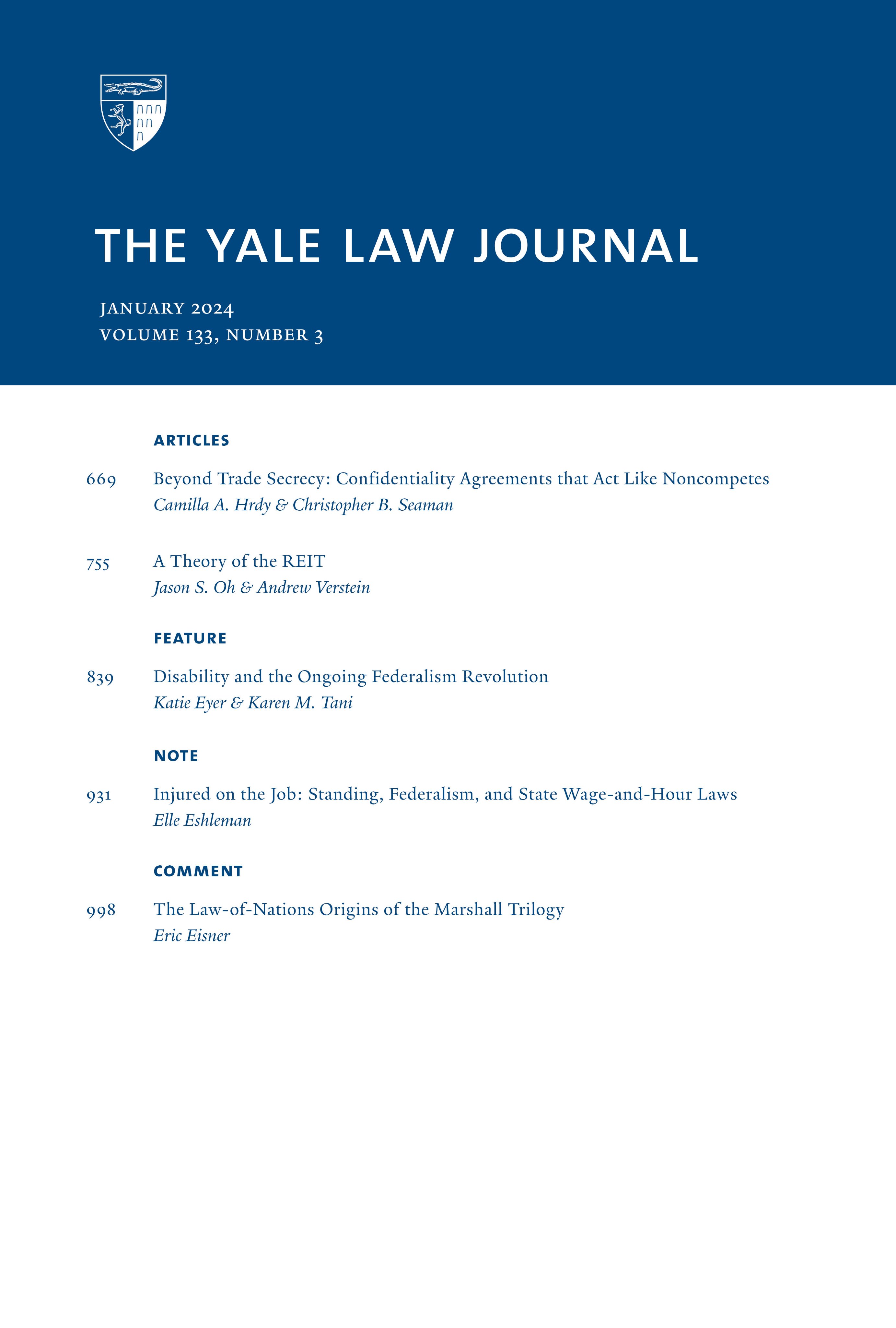布什诉戈尔和“限制”一词的使用
IF 5.2
1区 社会学
Q1 LAW
引用次数: 3
摘要
根据最高法院使用“限制性语言”的历史,我的评论着眼于第六巡回法院斯图尔特诉布莱克威尔案的辩论。我将最高法院过去对限制性语言的使用进行了分类,并对最高法院对限制性语言的几次使用进行了区分。有人将布什诉戈尔案中的限制性语言辩护为无伤大义的极简主义的例子,对此,我在此报告我的发现,即“限制性”一词总是被最高法院用来否定判决前一案件的原则。此外,在布什之前,最高法院从未使用限制性语言来限制正在裁决的案件的多数意见中的原则。斯图尔特的多数派应该注意到这种限制性语言的新用法,并要求最高法院进一步澄清。本文章由计算机程序翻译,如有差异,请以英文原文为准。
Bush v. Gore and the Uses of 'Limiting'
My comment looks at the debate in the 6th Circuit case Stewart v. Blackwell in light of the history of the use of "limiting language" by the Supreme Court. I catalog the Court's past uses of limiting language, and distinguish between the Court's several uses of limiting language. Against those who defend the limiting language of Bush v. Gore as simply an example of innocuous minimalism, I report my findings that "limiting" is always used by the Court to nullify a principle that decided a previous case. Additionally, the Court has never, prior to Bush, used limiting language to limit the principle in the majority opinion of case being decided. The Stewart majority would have been well advised to note this new use of limiting language, and to ask for further clarification by the Supreme Court.
求助全文
通过发布文献求助,成功后即可免费获取论文全文。
去求助
来源期刊

Yale Law Journal
LAW-
CiteScore
4.50
自引率
6.20%
发文量
0
期刊介绍:
The Yale Law Journal Online is the online companion to The Yale Law Journal. It replaces The Pocket Part, which was the first such companion to be published by a leading law review. YLJ Online will continue The Pocket Part"s mission of augmenting the scholarship printed in The Yale Law Journal by providing original Essays, legal commentaries, responses to articles printed in the Journal, podcast and iTunes University recordings of various pieces, and other works by both established and emerging academics and practitioners.
 求助内容:
求助内容: 应助结果提醒方式:
应助结果提醒方式:


